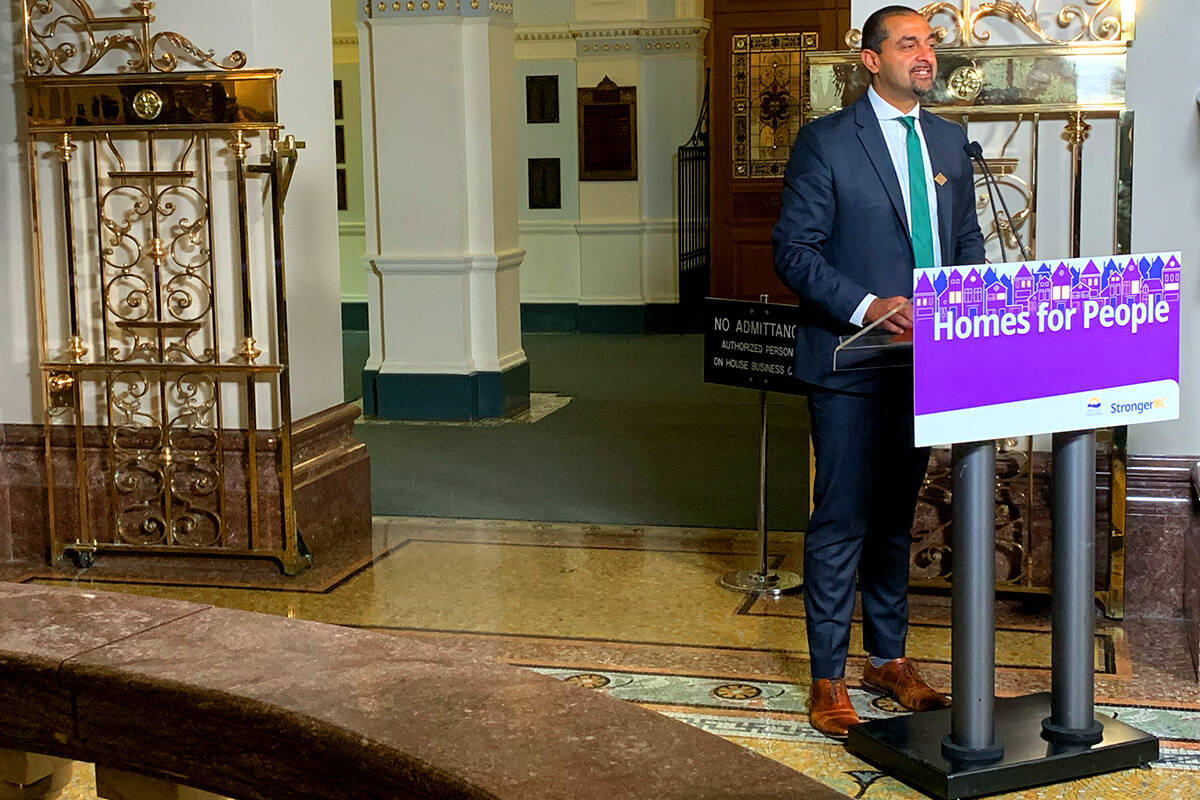As B.C.’s legislature Thursday (May 16) rose for the last time before this fall’s provincial election, a UBC political scientist says Premier David Eby’s team will head into that campaign on the defensive.
“The B.C. NDP has spent much of the spring playing defence, at a time when they would have much rather be going on the attack and really making more assertive statements to British Columbians about what they will do in the future,” Stewart Prest said.
He points to the “about-face” on decriminalization.
“That’s a significant turn-about on a significant policy issue,” he said.
Other issues that contributed to the B.C.’s NDP defensive posture included the ongoing saga of the Surrey Police transition as well as growing opposition to carbon tax.
“It’s an environment in which we see the B.C. NDP vulnerable in ways that perhaps that…didn’t seem likely a year ago.”
This vulnerability has shown up in recent opinion surveys where British Columbians have expressed concern about the state of the economy and the overall direction of the province. At the same time, those polls also show the NDP heading toward another majority government with the public for now favouring the proposed remedies of Eby’s government.
But time might not be working in favour of New Democrats, Prest said.
“Some of their bold proclamations, statements and budget commitments on things like housing, like additional funding for health care have not had time to have any kind of impact. So this is a government betwixt and between a little bit.”
B.C. Housing Minister and Government House Leader Ravi Kahlon said Thursday government made real progress on improving health care across B.C., pointing to the hiring of 700-plus new doctors and thousands of new nurses during the last year. He also pointed to a range of measures to improve housing — the top issue on the minds of British Columbians, according to multiple surveys.
The end of the session — which saw government table and pass 27 pieces of legislation — does not also spell end of government efforts, Kahlon added.
RELATED: B.C. premier marks last day of legislature with campaign-style rally speech
RELATED: B.C. United, B.C. Conservative merger ‘pretty unlikely’: political scientist
RELATED: B.C. United, B.C Conservatives look for ‘common ground’ to defeat NDP
RELATED: New Abacus poll shows B.C. Conservatives within six points of B.C. NDP
When asked about government’s changes to decriminalization, Kahlon said court rulings left government with no choice .
“There is no set formula on how to address the mental health and addictions crisis that we’re dealing with,” he said. “We are doing our best to work with healthcare professionals with our police to ensure communities stay safe and yet people get can get access to what they need.”
B.C. United Leader Kevin Falcon described the last session as “nightmarish” for the B.C. NDP.
“They completely lost the confidence of British Columbians,” he said.
He praised government’s “partial backtrack” on decriminalization as “good” but repeated his party’s promise to scrap decriminalization within 30 days of coming to office.
B.C. Greens Leader Sonia Furstenau said Wednesday the decriminalization issue shows the reactive nature of the Eby government.
“It’s all scramble, no strategy,” she said.
Thursday marked not only the end of the current legislative session, but also the end of B.C.’s 42nd parliament elected in October 2020 with the COVID-19 pandemic just seven months old with several more crises to follow.
Eby said New Democrats have always been able to weather challenges, while sticking to government as a tool for improving the lives of others.
“I’d like to quote a famous philosopher,” he said. “‘We cannot direct the winds, but we can adjust the sails.’ Some of you may recognize that philosopher as the late, great Dolly Parton. I have been alive for 47 years and Dolly Parton has never steered me wrong,” he said.
Parton, for the record, is still alive.

